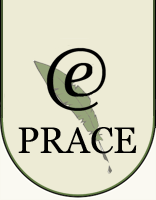
Place of the English language among spoken tongues
Although Ghana is a highly multilingual country with about sixty language groups, still all inhabitants share and recognize one common language, English, which is the official language of Ghana. It is used in government, the national media, most business transactions and functions as a language of instruction in all Ghanaian schools. However, using local vernaculars at primary levels has been promoted since the mid- 1980s making learning one of nine Ghanaian languages obligatory. Such actions to help retain the national identity were also taken by Ghanaian parliament. Despite the constitutional requirement from 1969 for English to be used by members of parliament it was abolished in 1992 as it was believed to hinder the overall diversity of representation in government (Boahen 1998:2).
Belonging to an individual language group, and still sharing one universal language makes most Ghanaian at least bilingual. It is not uncommon to hear somebody speaking three or more languages, sometimes even within a single conversation. Such cases are typical of the urban areas, where words and phrases from local vernaculars such as Akan, Dagbani, Ewe, Ga or Hausa are employed and mixed with English especially in advertisements and public service announcements. Made up in this way Pidgin, a language that includes aspects of both local languages and English is also very popular among youngsters who have a tendency to abandon endings of English words, pronouncing water “ łota”, circle “sirk”, and battery “bat” – just to give a few examples (Boahen 2000:10).
komentarze
Copyright © 2008-2010 EPrace oraz autorzy prac.